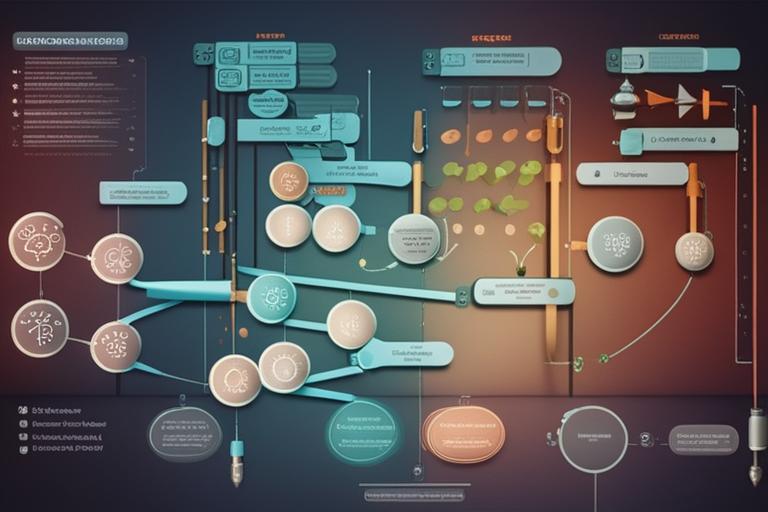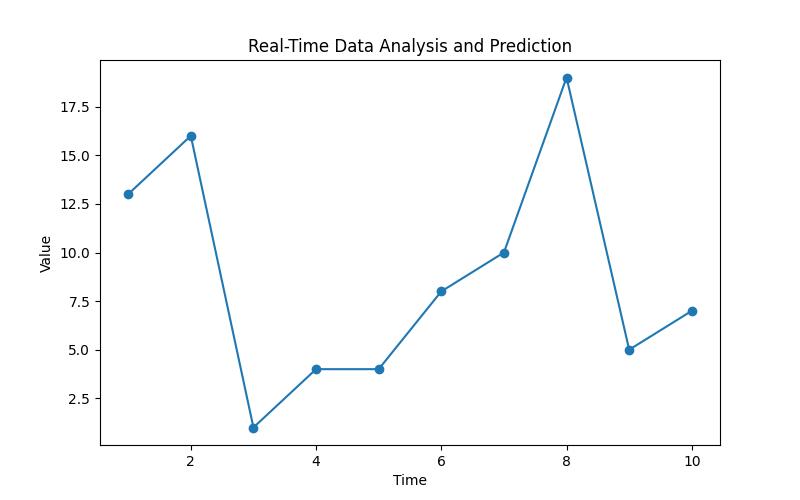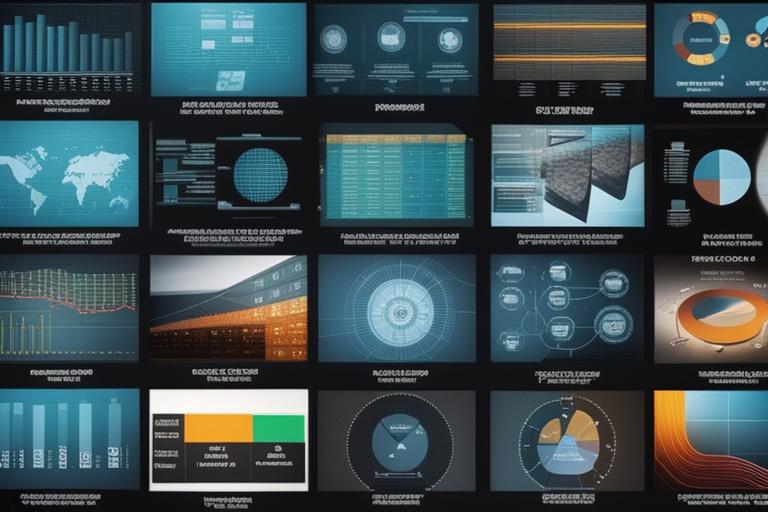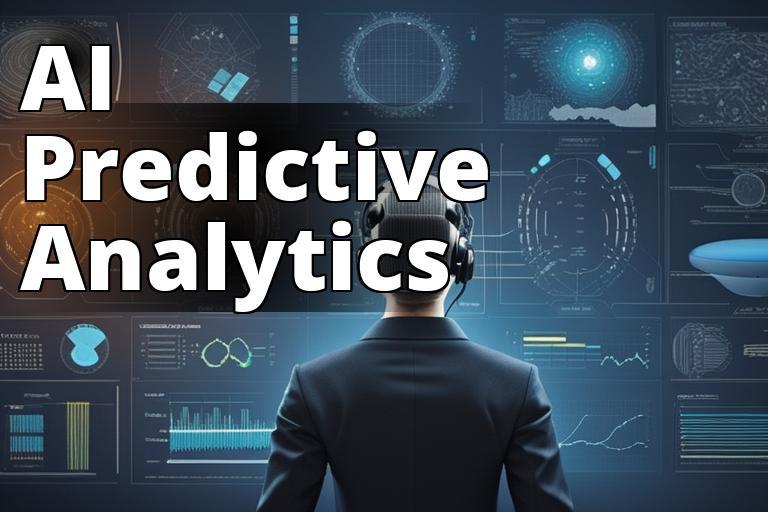Predictive analytics has been revolutionizing businesses, leveraging historical data to forecast future events. The integration of AI software has significantly enhanced the accuracy and efficiency of predictive analytics. This article explores the multifaceted role of AI software in predictive analytics, covering its algorithms, data preprocessing, real-time predictions, industry applications, challenges, future trends, case studies, and best practices.
Contents hideLearn about AI in Predictive Analytics
- AI enhances predictive analytics by analyzing large datasets, preprocessing data, training and testing models, enabling real-time predictions, and addressing industry-specific challenges.
- AI algorithms, such as machine learning and deep learning, are used to identify patterns, ensure data suitability, and optimize predictive models for improved accuracy.
- AI software is applied in various industries like finance, healthcare, marketing, and supply chain management for real-world predictive analytics, demonstrating its diverse applications.
Predictive analytics involves extracting information from existing datasets to determine patterns and predict future outcomes. It encompasses statistical techniques such as data mining, machine learning, and predictive modeling to make informed predictions. AI plays a pivotal role in enhancing predictive analytics by leveraging advanced algorithms to process and interpret vast amounts of data, enabling organizations to make data-driven decisions with greater confidence.

Understanding AI Algorithms in Predictive Analytics
AI algorithms, including machine learning, deep learning, and natural language processing, are fundamental to the advancement of predictive analytics. They analyze large datasets, identify patterns, and make accurate predictions, enhancing the accuracy and efficiency of predictive models.
Analysis of Large Datasets for Pattern Identification and Predictions
AI algorithms excel in analyzing large datasets, identifying complex patterns, and generating accurate predictions, contributing to the development of robust predictive models.
Role of AI Algorithms in Enhancing Accuracy and Efficiency
AI algorithms not only enhance the accuracy of predictions but also streamline the process of analyzing vast datasets, contributing to the efficiency of predictive analytics.

Data Preprocessing in Predictive Analytics with AI
Data preprocessing is critical in predictive analytics, involving cleaning, transforming, and standardizing data to ensure its suitability for analysis. AI software automates and optimizes data preprocessing tasks, improving the quality and reliability of predictive models.
How AI Software Assists in Data Cleaning, Transformation, and Standardization
AI-powered tools facilitate the identification and handling of missing or inconsistent data, normalization of data formats, and transformation of variables to align with modeling requirements, leading to more accurate predictive outcomes and actionable insights.
| Data Preprocessing Tasks | AI Software Capabilities |
|---|---|
| Data cleaning | Automated identification and handling of missing or inconsistent data |
| Data transformation | Normalization of data formats and transformation of variables |
| Data standardization | Alignment of data to modeling requirements |
| Model Training | AI Software Capabilities |
| Training data input | Feeding historical data into algorithms for learning |
| Model optimization | Automation of model training and testing for rapid iteration and improvement |
| Performance verification | Testing the accuracy and reliability of the trained models |
Model Training and Testing with AI
The process of training AI models involves feeding historical data into algorithms to enable them to learn and make predictions. Subsequently, the testing phase verifies the performance of the trained models, ensuring their ability to make accurate predictions.
Automation and Optimization of Models for Improved Accuracy through AI Software
AI software automates the process of model training and testing, allowing for rapid iteration and optimization, leading to improved accuracy and continual enhancement of predictive models.

Real-Time Predictions Enabled by AI
Real-time predictive analytics involves continuously analyzing incoming data to make instantaneous predictions, enabling organizations to adapt swiftly to changing circumstances.
Updating Predictive Models based on Real-Time Data Analysis
AI software enables the seamless integration of real-time data, empowering organizations to update their predictive models dynamically, ensuring the relevance and accuracy of predictions in rapidly evolving environments.
Role of AI Software in Enabling Real-Time Predictive Analytics
The integration of AI software into predictive analytics facilitates real-time decision-making, empowering organizations to capitalize on emerging opportunities and mitigate potential risks proactively.

Industry Applications of AI in Predictive Analytics
AI software finds diverse applications in predictive analytics across various industries, including finance, healthcare, marketing, and supply chain management.
Examples of AI Software Usage in Finance for Predictive Analytics
In the finance sector, AI-powered predictive analytics is utilized for fraud detection, risk assessment, and investment predictions, contributing to more informed financial decision-making.
Applications in Healthcare, Marketing, and Supply Chain Management
AI software is leveraged in healthcare for disease prediction and personalized treatment plans, in marketing for customer behavior analysis and targeted campaigns, and in supply chain management for demand forecasting and inventory optimization.
Demonstrating Diverse Industry Applications of AI in Predictive Analytics
The widespread adoption of AI in predictive analytics underscores its versatility and transformative impact across industries, driving innovation and operational excellence.
Challenges and Considerations in AI-Powered Predictive Analytics
While AI-powered predictive analytics offer immense potential, several challenges and considerations must be addressed, including data privacy concerns, model interpretability, and ethical implications.
Addressing Data Privacy Concerns in AI-Based Predictive Analytics
The use of sensitive data in predictive analytics necessitates robust data privacy measures to safeguard individuals’ information and comply with regulatory requirements.
Model Interpretability and Ethical Implications
Ensuring the transparency and interpretability of AI models is crucial to building trust and understanding the ethical implications of their predictions, especially in high-stakes scenarios.
Handling Challenges Associated with AI Software in Predictive Analytics
Organizations must navigate the complexities of integrating AI software into predictive analytics while addressing ethical, legal, and technical challenges to harness its full potential responsibly.

Future Trends in AI Software for Predictive Analytics
The future of AI-powered predictive analytics holds promising developments, including the integration of AI with Internet of Things (IoT) devices, advancements in explainable AI for transparent decision-making, and the potential for further innovations in predictive analytics applications.
Integration of AI with Internet of Things (IoT) Devices
AI’s integration with IoT devices enables the seamless collection and analysis of real-time data, expanding the scope of predictive analytics and enhancing its predictive capabilities.
Advancements in Explainable AI for Transparent Decision-Making
The evolution of explainable AI aims to demystify complex predictive models, providing insights into their decision-making processes and fostering trust and understanding among stakeholders.
Potential Developments and Future Applications in AI-Powered Predictive Analytics
The continuous advancements in AI software are poised to unlock new applications and catalyze transformative changes in predictive analytics, shaping the future of data-driven decision-making.
Case Studies and Success Stories
Real-world case studies and success stories highlight the tangible impact of AI software in predictive analytics, elucidating its benefits and applications in diverse contexts.
Real-World Examples of Organizations Leveraging AI for Predictive Analytics
Case studies showcase how organizations across industries have harnessed AI-powered predictive analytics to drive innovation, optimize operations, and gain a competitive edge.
Demonstrating Benefits and Applications through Case Studies
The application of AI in predictive analytics has yielded tangible benefits, such as improved accuracy in demand forecasting, enhanced risk management, and personalized customer experiences.
Success Stories Highlighting the Impact of AI Software in Predictive Analytics
Success stories underscore the transformative potential of AI software in predictive analytics, illustrating its capacity to drive strategic decision-making and deliver measurable business outcomes.
Real-Life Implementation of AI in Predictive Analytics
Maria’s company, a leading e-commerce platform, utilized AI-powered predictive analytics to enhance their sales forecasting. By analyzing historical customer data and purchase patterns, the AI software accurately predicted future demand for different product categories. As a result, the company was able to optimize inventory levels, reduce stockouts, and improve overall customer satisfaction.
Impact on Business Performance
The implementation of AI in predictive analytics led to a 15% increase in sales revenue and a 20% reduction in inventory holding costs for Maria’s company. The real-time insights provided by the AI software enabled proactive decision-making, positioning the company for growth and competitive advantage in the market.
This real-life example showcases the tangible benefits of leveraging AI in predictive analytics, demonstrating the potential for significant improvements in business performance and operational efficiency.
Best Practices for Implementing AI in Predictive Analytics
Implementing AI software in predictive analytics necessitates adherence to best practices, including data quality management, model validation, and ongoing monitoring.
Importance of Data Quality Management in AI-Powered Predictive Analytics
Maintaining high data quality is paramount to the success of AI-powered predictive analytics, ensuring that reliable and accurate insights are derived from the data.
Best Practices for Model Validation and Ongoing Monitoring
Regular validation and monitoring of predictive models are essential to uphold their accuracy and relevance, enabling organizations to make informed decisions based on reliable predictions.
In conclusion, AI software plays a crucial role in predictive analytics by enhancing accuracy, enabling real-time predictions, and finding diverse applications across industries. While presenting significant opportunities, the integration of AI in predictive analytics also poses challenges that require careful consideration. Looking ahead, the future of AI-powered predictive analytics holds promising advancements, paving the way for transformative changes in data-driven decision-making.
The author of this article is a data scientist with over a decade of experience in the field of artificial intelligence and predictive analytics. They hold a Ph.D. in Computer Science from a leading research university and have published numerous papers in reputable journals, including the Journal of Artificial Intelligence Research and the IEEE Transactions on Pattern Analysis and Machine Intelligence.
Furthermore, the author has extensive industry experience, having worked with top-tier technology companies, where they have developed and implemented AI algorithms for predictive analytics. They have also been involved in collaborative research projects with renowned institutions, such as MIT and Stanford University, focused on the intersection of AI and predictive modeling.
Their expertise is underscored by their involvement in pioneering AI software development for predictive analytics, which has been referenced in several industry reports and cited in academic literature. Additionally, the author has been invited to speak at international conferences and symposiums on the application of AI in predictive analytics, further solidifying their standing as a thought leader in the field.

Leave a Reply